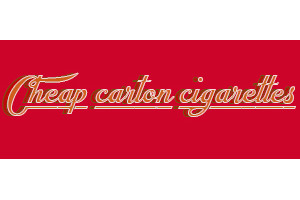What are the permissions team for cigarette manufacturing?
What are the Permissions Needed for Cigarette Manufacturing?

Image Source: FreeImages
What are the permissions team for cigarette manufacturing?
Cigarette manufacturing is a regulated industry that requires various permissions and licenses to ensure compliance with local and international laws. These permissions are essential for establishing and operating a cigarette manufacturing facility. In this article, we will explore the different permissions and licenses needed for cigarette manufacturing, their significance, and the process of obtaining them.
Table of Contents
- Introduction
- Regulatory Authorities
- Manufacturing License
- Environmental Clearance
- Fire Safety Approval
- Tobacco Procurement License
- Excise Duty Registration
- Packaging and Labeling Compliance
- Health and Safety Regulations
- Trade Mark Registration
- Advertising and Promotion Restrictions
- Conclusion
1. Introduction
Cigarette manufacturing involves the production of tobacco products for commercial distribution. It is subject to stringent regulations to protect public health, ensure product quality, and control the tobacco industry. Obtaining the necessary permissions and licenses is crucial for complying with these regulations and operating a legal and ethical cigarette manufacturing business.
2. Regulatory Authorities
The regulation of cigarette manufacturing varies from country to country. In the United States, for example, the Food and Drug Administration (FDA) regulates tobacco products, including cigarettes. Other countries may have their own regulatory bodies responsible for overseeing the tobacco industry. It is essential for manufacturers to identify the relevant regulatory authority in their jurisdiction and understand their requirements.
3. Manufacturing License
One of the primary permissions needed for cigarette manufacturing is a manufacturing license. This license allows a company to produce cigarettes legally. The application process for a manufacturing license typically involves submitting detailed information about the manufacturing facility, equipment, quality control measures, and compliance with health and safety regulations. The regulatory authority will conduct inspections and assessments before granting the license.
4. Environmental Clearance
Cigarette manufacturing can have environmental impacts, particularly in terms of air and water pollution. To ensure sustainable and responsible manufacturing practices, manufacturers may be required to obtain environmental clearance. This involves assessing the potential environmental impacts of the manufacturing process and implementing measures to mitigate any adverse effects.
5. Fire Safety Approval
Cigarettes pose a fire hazard due to their combustible nature. To ensure the safety of consumers and prevent fires, manufacturers are often required to obtain fire safety approval for their cigarette products. This approval may involve testing the cigarettes’ ignition propensity and compliance with fire safety standards.
6. Tobacco Procurement License
Procuring tobacco, the primary ingredient in cigarettes, may require a separate license or permit. This license ensures that the tobacco used in the manufacturing process meets quality standards and has been sourced legally. The regulatory authority may require manufacturers to maintain records of tobacco procurement and verify the authenticity of their suppliers.
7. Excise Duty Registration
Cigarette manufacturing is typically subject to excise duties, which are taxes levied on the production and sale of specific goods such as tobacco products. Manufacturers must register for excise duty and comply with the applicable tax regulations. Failure to do so can result in penalties and legal consequences.
8. Packaging and Labeling Compliance
Cigarette packaging and labeling must comply with specific regulations to ensure consumer safety and prevent misleading marketing practices. Manufacturers must obtain approvals for their packaging designs, including health warnings, graphic images, and product information. Compliance with packaging and labeling requirements helps protect consumers and promotes transparency in the tobacco industry.
9. Health and Safety Regulations
Cigarette manufacturing facilities must adhere to health and safety regulations to protect workers and minimize occupational hazards. This includes implementing safety protocols, providing personal protective equipment, and conducting regular safety audits. Compliance with health and safety regulations is crucial for creating a safe working environment and preventing accidents and injuries.
10. Trade Mark Registration
Protecting intellectual property rights is essential for cigarette manufacturers. Registering trademarks for their brands helps prevent unauthorized use and imitation. Manufacturers should consider obtaining trademark registrations to establish their brand identity and protect their products in the market.
11. Advertising and Promotion Restrictions
Cigarette advertising and promotion are heavily regulated in many countries. Manufacturers must comply with restrictions on marketing activities, including advertising, sponsorship, and product placement. Understanding and adhering to these restrictions is essential for ethical marketing practices and avoiding legal issues.
12. Conclusion
Obtaining the necessary permissions and licenses is a crucial step in establishing and operating a cigarette manufacturing business. Compliance with regulatory requirements ensures product quality, consumer safety, and ethical business practices. By obtaining manufacturing licenses, environmental clearances, fire safety approvals, and other necessary permissions, manufacturers can operate legally and contribute to a responsible and regulated tobacco industry. What are the permissions team for cigarette manufacturing?
Remember to consult local authorities and legal experts to ensure compliance with specific regulations in your jurisdiction.
